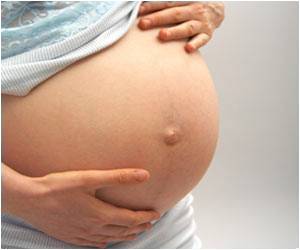Is stress harmful during pregnancy? Yes, too much stress during pregnancy may alter gene expression in multiple muscle groups of offspring.

‘Is stress harmful during pregnancy? Yes, too much stress during pregnancy may alter gene expression in multiple muscle groups of offspring.’
Read More..




Cortisol is a hormone that helps regulate blood pressure and blood sugar levels, and responds to infections and stress in the body. Because of its involvement with stress response—the body produces more of the hormone to counter stress—cortisol is often referred to as the “stress hormone.”Read More..
Previous research has shown that spikes in cortisol affect glucose levels in pregnant sheep and increase the risk of stillbirth. Lambs born to ewes with high cortisol have had breathing and standing problems, suggesting weakness in the leg and diaphragm muscles.
Past studies have also found that maternal cortisol led to a decrease in the number of mitochondria—the “powerhouse” of cells essential for producing energy—in the hearts of offspring.
In a new study, researchers from the University of Florida aimed to learn if high cortisol levels in late pregnancy affected genes in the next generation’s skeletal muscle. The researchers used muscle tissue from the thigh (biceps femoris), diaphragm and heart of the offspring of pregnant ewes treated with cortisol. They compared genetic material—RNA and mitochondrial DNA—with a control group of offspring whose mothers were not treated with cortisol.
The research team found that cortisol altered the expression of genes in important pathways and functions in both the heart and the biceps femoris. Gene expression is the way information from a gene is used to create proteins or other chemicals in the body. Some of the genes that were expressed more strongly (upregulated) in both the biceps femoris and heart are associated with cancer cell proliferation, inflammation and infection.
Advertisement
Free radicals are molecules that can cause damage to the cells when they accumulate in the body. These results suggest “that both the biceps and the diaphragm are adversely affected by increases in maternal cortisol, suggesting that chronic maternal stress would adversely affect metabolism in skeletal muscles as well as cardiac muscle,” the researchers wrote.
Advertisement















